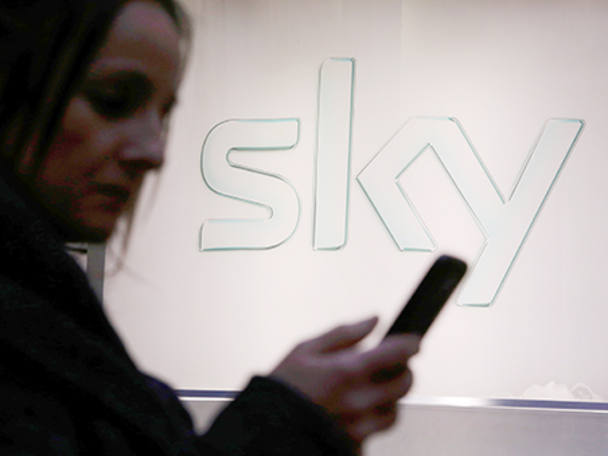The likes of Sky (SKY), BT (BT.A) and ITV (ITV) will be heartened by the findings of Ofcom's latest Communications Market Report. The telecoms regulator highlighted growing UK adoption of smartphones and rising consumption of digital media in 2015, and may help to relieve worries about television and radio demand.
Ofcom surveyed UK consumers about their use of landline and mobile telephony, television, radio, on-demand video and postal services. It found the average UK adult spent eight hours and 45 minutes a day using media and communications services last year - longer than he or she slept each night. The proportion of UK adults who own a smartphone swelled from 66 to 71 per cent, while more than a quarter logged on to paid, on-demand services such as Netflix and Amazon Instant Video each week, up from 18 per cent in 2014. The growing appetite for digital content bodes well for ITV Player, Sky Store and other platforms. The trade-off was that the proportion of people who tuned in to live television and radio each week dipped to around 90 per cent.
Take-up of bundled services
The report pointed to both gains and shortcomings in the UK telecoms market. Network investments have expanded 4G availability, meaning 48 per cent of UK adults now use the high-speed wireless standard, up from 30 per cent in 2015. The number of broadband connections grew by about 4 per cent to 24.7m, and 37 per cent of those are 'superfast'. Unsurprisingly, the number of landlines fell by 1 per cent to 33.2m, while mobile subscriptions rose 2 per cent to 91.5m. Weekly users of Facebook Messenger, WhatsApp and other mobile messaging services ballooned from 28 to 43 per cent, leading to fewer people sending texts and emails. But Ofcom called for faster broadband in certain areas, as 2.4m homes and small businesses have connection speeds below the regulator's acceptable threshold.
Telecoms groups have touted the bundling of services as a way to improve customer retention and drive up average revenue per user. Ofcom's report suggests their efforts are paying off: 28 per cent of UK households bought a package of landline, broadband and TV services in 2016, up from 5 per cent a decade earlier. But the proportion who take 'quad-play' bundles - which add mobile to the mix - remains low at 2 per cent. That may rise in the coming months, as BT's recent takeover of mobile giant EE has allowed it to offer full packages, and Sky plans to launch a mobile service later this year.
Ofcom found just over two-thirds of UK internet users bought goods and services online, and 42 per cent browsed news on the web. Those trends underline the importance of e-commerce and digital storefronts to retailers, and the robust demand for current-events coverage - albeit largely free - online. The regulator also reiterated its plans to tackle concerns about BT's Openreach division, which owns the 'last mile' of wires and cables that connect UK homes to the national network. It intends to open up and improve access to Openreach's telegraph poles and ducts, allowing rival operators to build their own fibre networks. It also plans to make Openreach a distinct business within BT, with greater independence and an obligation to serve all customers equally.











